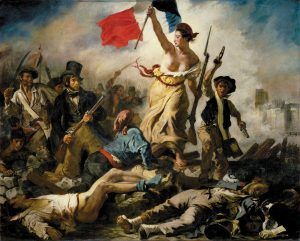David A. Bell in the New York Review of Books:

While the collapse of communism did not bring history to an end, it did, briefly, seem to establish a worldwide consensus of sorts. Had one particular social and political system, by dint of hard experience, proven superior to all its rivals? Apparently yes. That system was what could be called the liberal ideal, constructed around representative democracy, human rights, and free-market capitalism complemented by a strong social safety net. If this system did not turn out to be the inevitable, placid, posthistorical future of all mankind, as predicted in Francis Fukuyama’s notorious 1989 essay, it nonetheless stood as a goal toward which all humanity was now going to strive.
That consensus seemed to hold even after the bloody disintegration of Yugoslavia and the September 11 attacks. Now, however, it is fracturing. Around the world, populist politicians on the right are winning elections by warning demagogically that representative democracy and human rights policies are too weak to protect hardworking, native-born families against threats from beyond their national borders—especially terrorists and migrant hordes. At the same time, a resurgent socialist left is gaining support by warning that liberal social democracy is too fragile to protect ordinary people from the ever more disruptive forces of global capitalism. While today’s ideological cleavages are not as wide as those of the 1930s, they are nonetheless more pronounced than at any time since the cold war.
More here.
